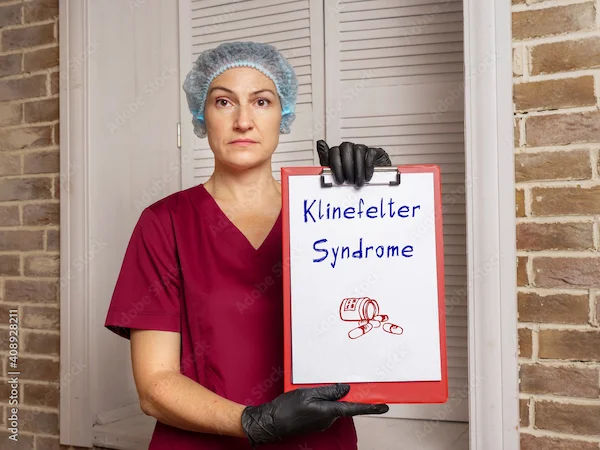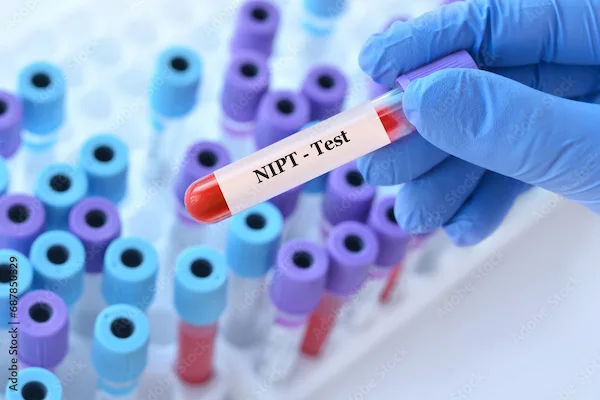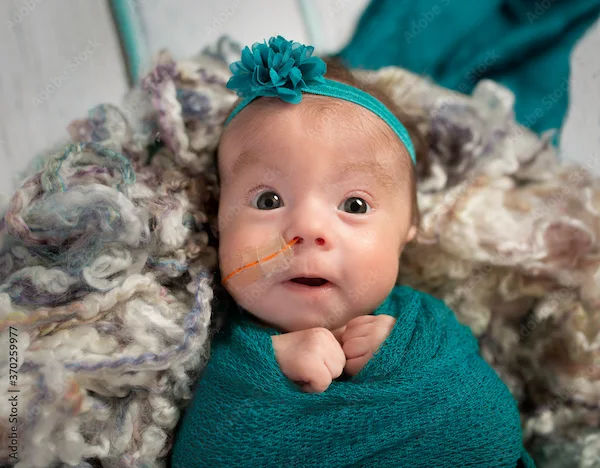NIPT and First-Trimester Maternal Screening
Know about nipt & first trimester maternal screening, what are they, what they test, who should get it done, tips for healthy pregnancy and differences between them and more.


Introduction
Pregnancy is an exciting journey, but it can also bring some concerns about the baby’s health. To help ease worries and ensure a healthy pregnancy, doctors recommend certain screening tests. Two important tests are Non-Invasive Prenatal Testing (NIPT) and First-Trimester Maternal Screening.
If you're expecting, these tests can provide valuable information about your baby’s development and detect any potential genetic conditions early. Let’s understand what these tests are, why they matter, and how they can help you and your baby.
What is NIPT (Non-Invasive Prenatal Testing)?
NIPT is a simple blood test that checks for genetic conditions in the baby by analysing small fragments of the baby’s DNA present in the mother’s blood. It is non-invasive, meaning there’s no risk to the baby, unlike some other tests that may carry a small risk of miscarriage.
What Does the NIPT Test For?
It tests for:
- Down syndrome (Trisomy 21)
- Edwards syndrome (Trisomy 18)
- Patau syndrome (Trisomy 13)
- Sex chromosome abnormalities (optional)
When is NIPT Done?
NIPT can be done as early as 10 weeks into pregnancy and is highly accurate (over 99% for detecting Down
syndrome).
Consult a Gynaecologist for Personalised Advice
Who Should Consider NIPT?
It should be considered by:
- Women over 35 years (higher risk of chromosomal abnormalities)
- Those with a family history of genetic disorders
- Abnormal ultrasound findings
- Anyone who wants early and accurate screening
What is First-Trimester Maternal Screening?
First-trimester screening is a combination of a blood test and an ultrasound (nuchal translucency scan) done between 11 to 13 weeks of pregnancy. It helps assess the risk of chromosomal abnormalities and other pregnancy-related concerns.
What Does First-Trimester Screening Include?
It includes:
- Blood Test – Measures two pregnancy hormones (PAPP-A and hCG).
- Nuchal Translucency (NT) Scan – An ultrasound that measures the fluid at the back of the baby’s neck. Increased
thickness may indicate a higher risk of genetic conditions.
What Conditions Does It Screen For?
It is used for screening:
- Down syndrome
- Edwards syndrome
- Patau syndrome
- Heart defects (in some cases)
Who Should Get This Screening?
- All pregnant women, regardless of age
- Those who want early reassurance about their baby’s health
NIPT vs. First-Trimester Screening: Which One is Better?
Which One Should You Choose?
Choose:
- If you want the most accurate screening, NIPT is better.
- If you prefer a more affordable option, first-trimester screening is a good choice.
- Some women do both for extra reassurance.
Your doctor can help you decide based on your medical history and preferences.
What Happens If a Screening Test Shows High Risk?
A high-risk result does not mean your baby has a condition. It means further testing is needed. Your doctor may
recommend:
- Diagnostic Tests (like amniocentesis or CVS) for confirmation.
- Genetic counselling to understand the results better.
- Follow-up ultrasounds to monitor the baby’s growth.
Remember, many women with high-risk screening results go on to have healthy babies.
Tips for a Healthy Pregnancy
While screenings help detect risks, maintaining a healthy lifestyle is equally important:
- Eat a balanced diet (fruits, vegetables, whole grains, proteins).
- Take prenatal vitamins (especially folic acid).
- Stay active (walking, prenatal yoga).
- Avoid smoking, alcohol, and excessive caffeine.
- Attend all prenatal check-ups.
When to Consult a Doctor?
If you’re pregnant and considering these tests, talk to your doctor about:
- Which test is best for you?
- The right time to get tested.
- Understanding your results.
Final Thoughts
Pregnancy screenings like NIPT and first-trimester screening provide valuable insights into your baby’s health. While no test is 100% perfect, these screenings help detect potential concerns early, allowing for better planning and care.
Consult a Gynaecologist for Personalised Advice
Consult a Gynaecologist for Personalised Advice

Dr Bhawna Garg
Gynaecological Oncologist
26 Years • MBBS, MS, (PGI MS ROHTAK) FELLOWSHIP GYNECOLOGY ONCOLOGY, (CANCER INSTITUTE CHENNAI)
Delhi
Apollo Hospitals Indraprastha, Delhi

Dr. Amit Choraria
Surgical Oncologist
18 Years • MBBS, MS (Surgery) Fellow, Surgical Oncology, Tata Medical Center (FSO) Fellow, European Board of Surgery (Surgical Oncology) (FEBS) Fellow, Minimal Access Surgery (FMAS) Fellow, Indian Association of Gastrointestinal Endosurgeons (FIAGES) UICC Fellow, Royal Marsden NHS, London, UK Visiting Scholar, Plastic Reconstructive Surgery, CGMH, Taiwan Fellow, Robotic Surgical Oncology, Vattikuti Foundation, USA
Kolkata
Apollo Multispeciality Hospitals , Kolkata, Kolkata
(50+ Patients)

Dr. Sreeparna Roy
Obstetrician and Gynaecologist
8 Years • MBBS , MS (OBSTETRICS & GYNAECOLOGY), Fellowship in Infertility, Endoscopy & Ultrasonography), Fellowship in Laparoscopy & Hysteroscopy,DRM
Kolkata
Dr Utsa Basu Clinic, Kolkata
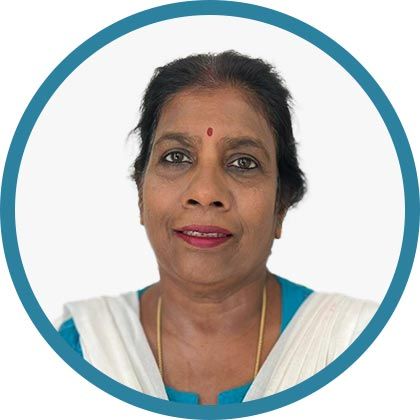
Dr. Renuka Chandran
Obstetrician and Gynaecologist
30 Years • MBBS, MD, DGO, Masters in Advanced Ultrasound in Obs & Gynea
Bangalore
Apollo Clinic Bellandur, Bangalore
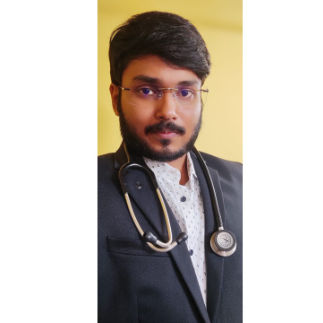
Dr. Rupam Manna
Radiation Specialist Oncologist
4 Years • MBBS MD(RADIO THERAPY)
Barasat
Diab-Eat-Ease, Barasat
Consult a Gynaecologist for Personalised Advice

Dr Bhawna Garg
Gynaecological Oncologist
26 Years • MBBS, MS, (PGI MS ROHTAK) FELLOWSHIP GYNECOLOGY ONCOLOGY, (CANCER INSTITUTE CHENNAI)
Delhi
Apollo Hospitals Indraprastha, Delhi

Dr. Amit Choraria
Surgical Oncologist
18 Years • MBBS, MS (Surgery) Fellow, Surgical Oncology, Tata Medical Center (FSO) Fellow, European Board of Surgery (Surgical Oncology) (FEBS) Fellow, Minimal Access Surgery (FMAS) Fellow, Indian Association of Gastrointestinal Endosurgeons (FIAGES) UICC Fellow, Royal Marsden NHS, London, UK Visiting Scholar, Plastic Reconstructive Surgery, CGMH, Taiwan Fellow, Robotic Surgical Oncology, Vattikuti Foundation, USA
Kolkata
Apollo Multispeciality Hospitals , Kolkata, Kolkata
(50+ Patients)

Dr. Sreeparna Roy
Obstetrician and Gynaecologist
8 Years • MBBS , MS (OBSTETRICS & GYNAECOLOGY), Fellowship in Infertility, Endoscopy & Ultrasonography), Fellowship in Laparoscopy & Hysteroscopy,DRM
Kolkata
Dr Utsa Basu Clinic, Kolkata

Dr. Renuka Chandran
Obstetrician and Gynaecologist
30 Years • MBBS, MD, DGO, Masters in Advanced Ultrasound in Obs & Gynea
Bangalore
Apollo Clinic Bellandur, Bangalore

Dr. Rupam Manna
Radiation Specialist Oncologist
4 Years • MBBS MD(RADIO THERAPY)
Barasat
Diab-Eat-Ease, Barasat
